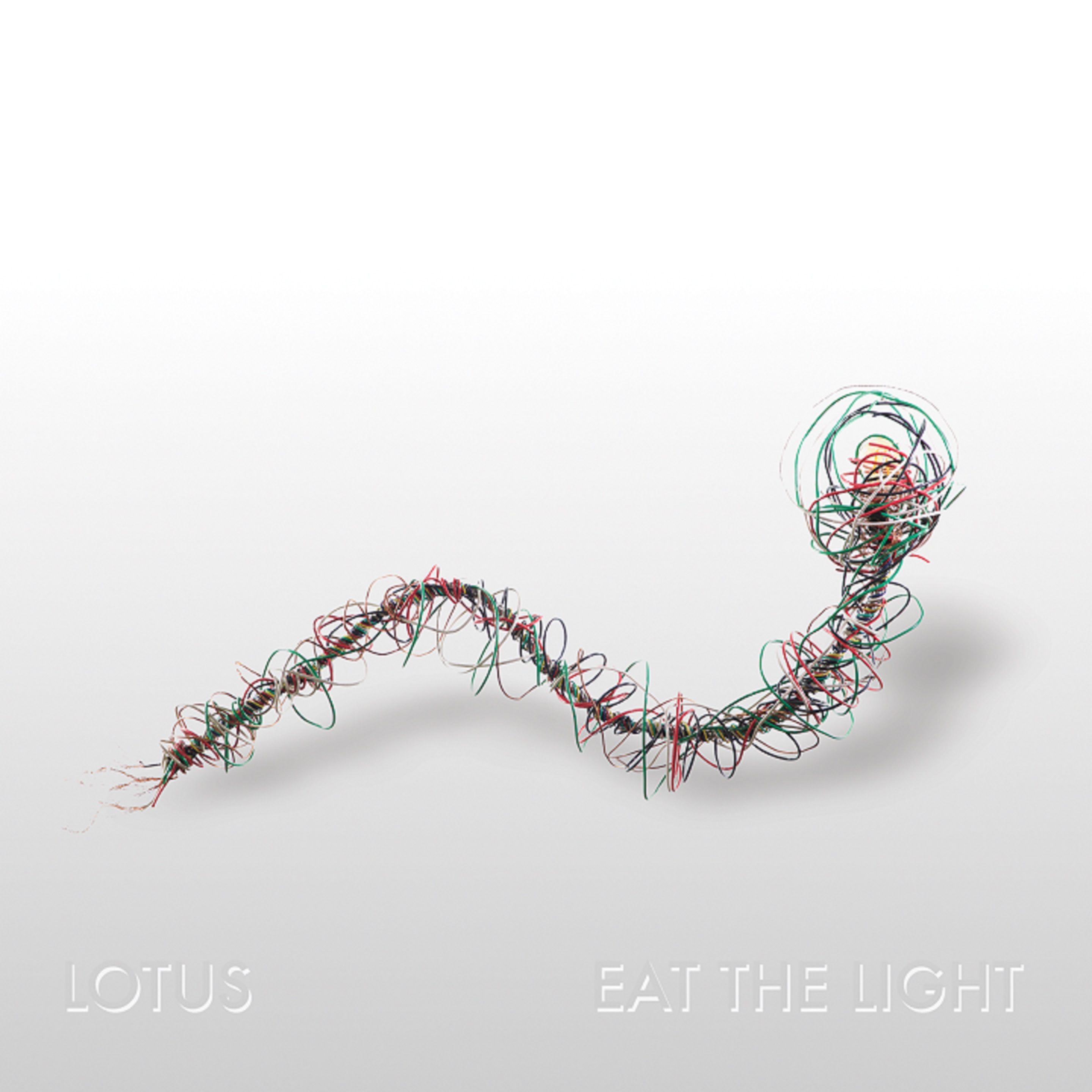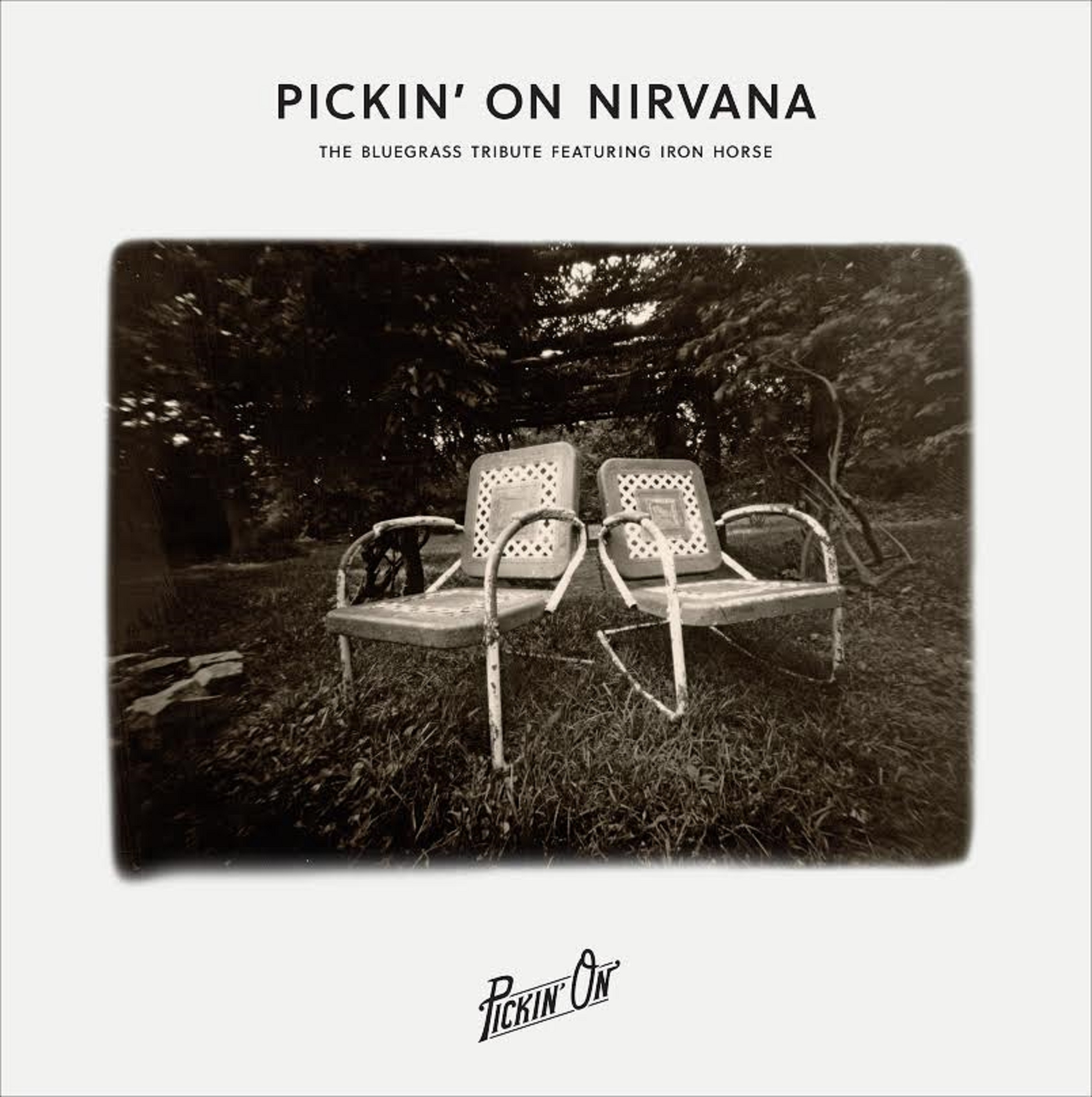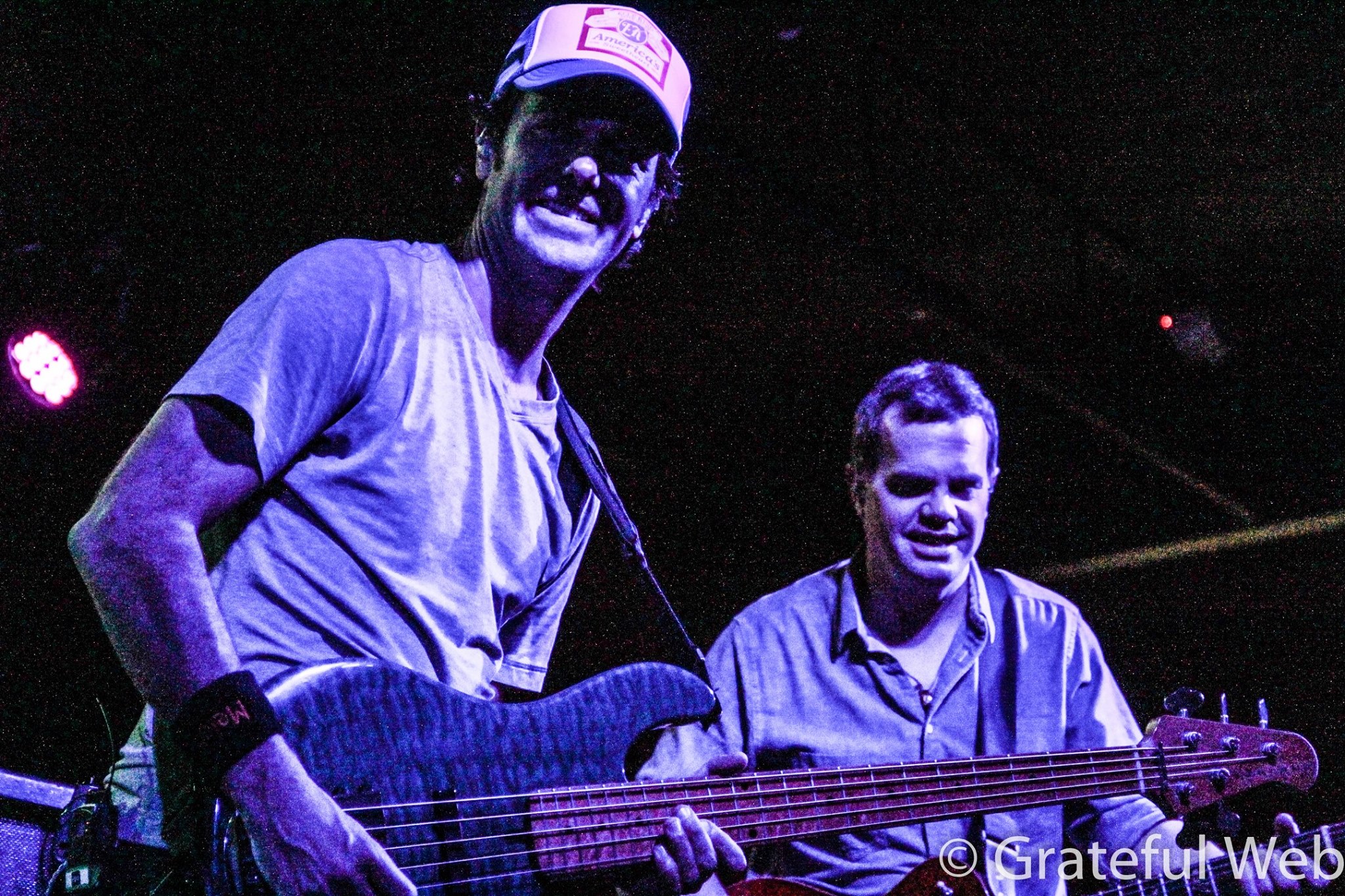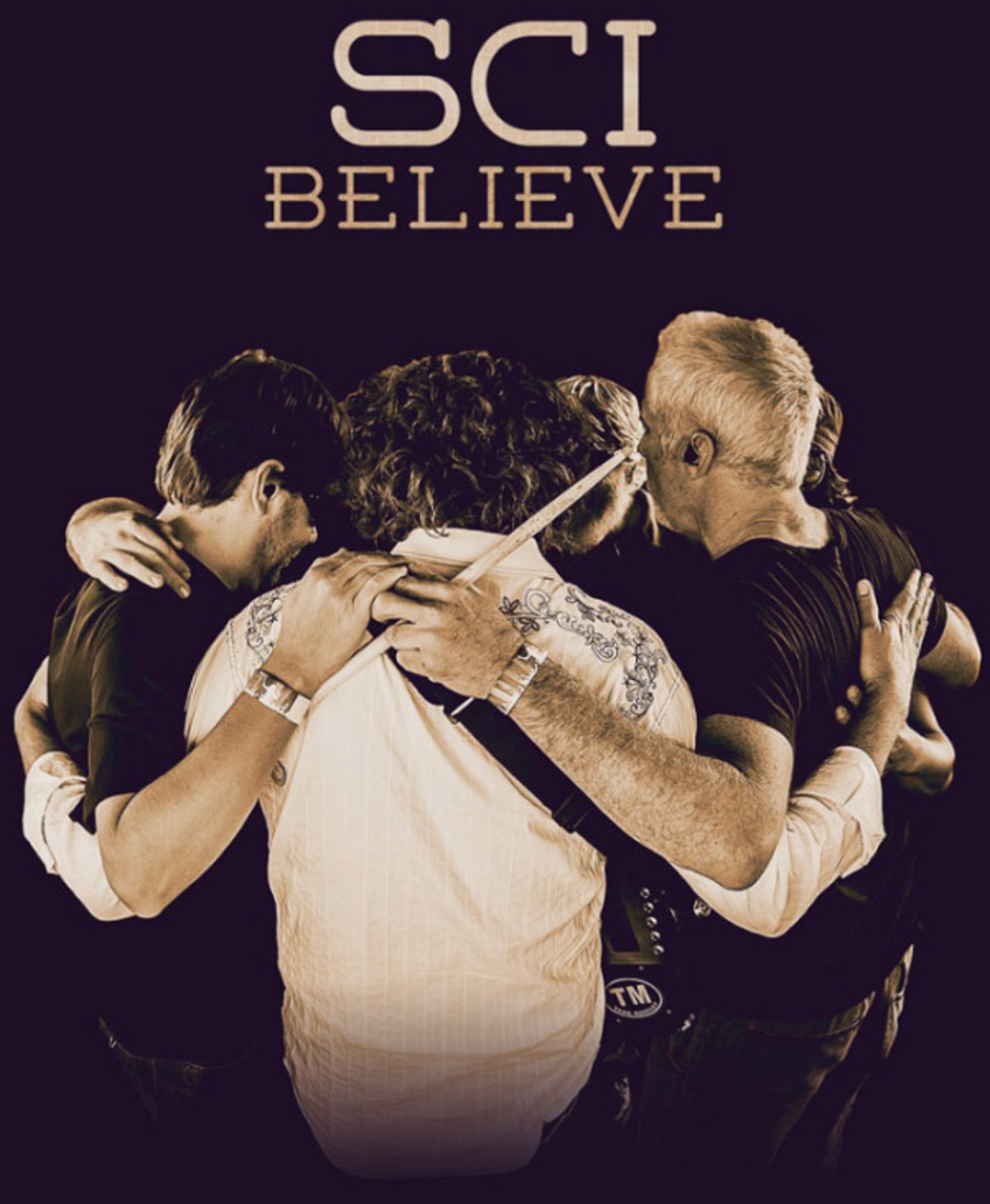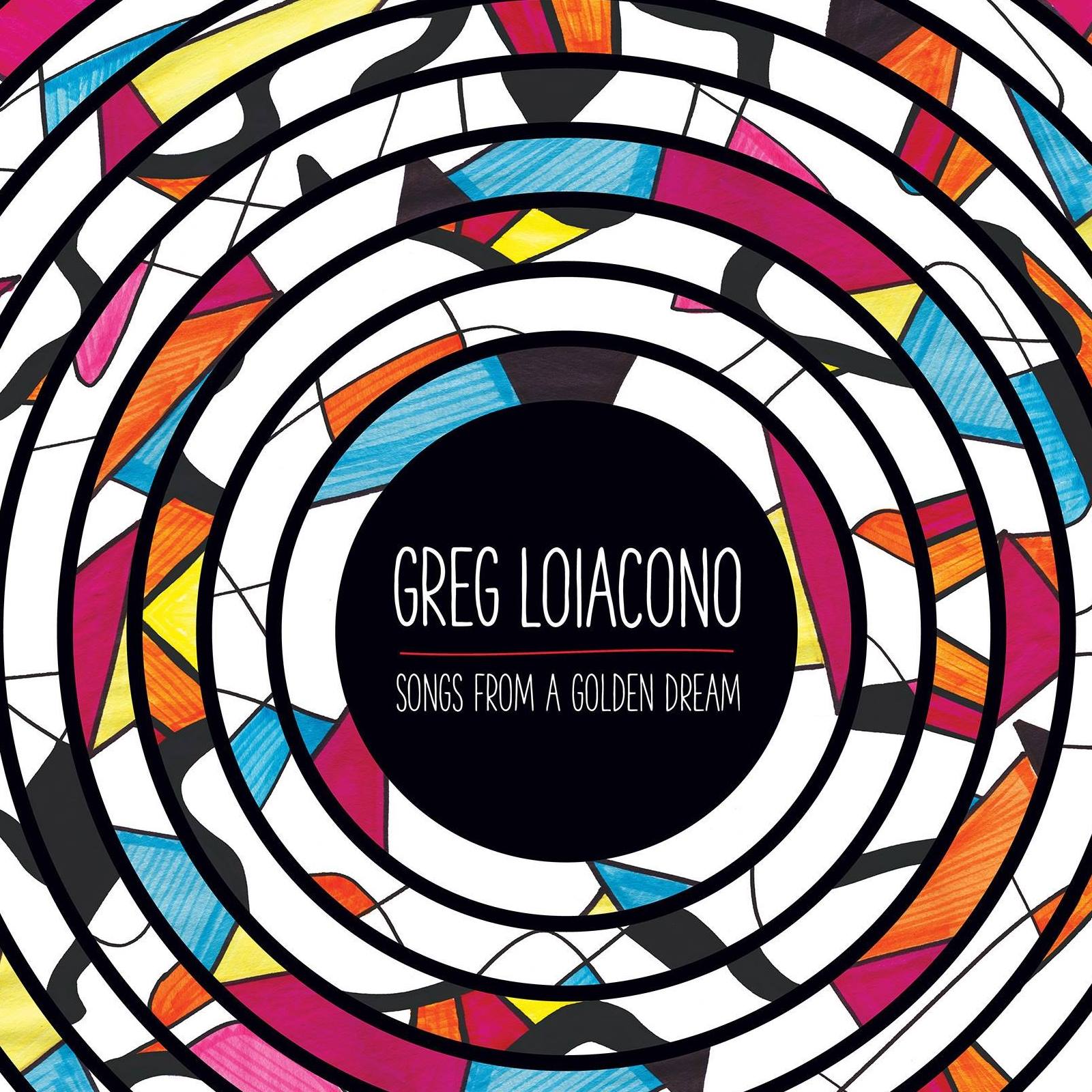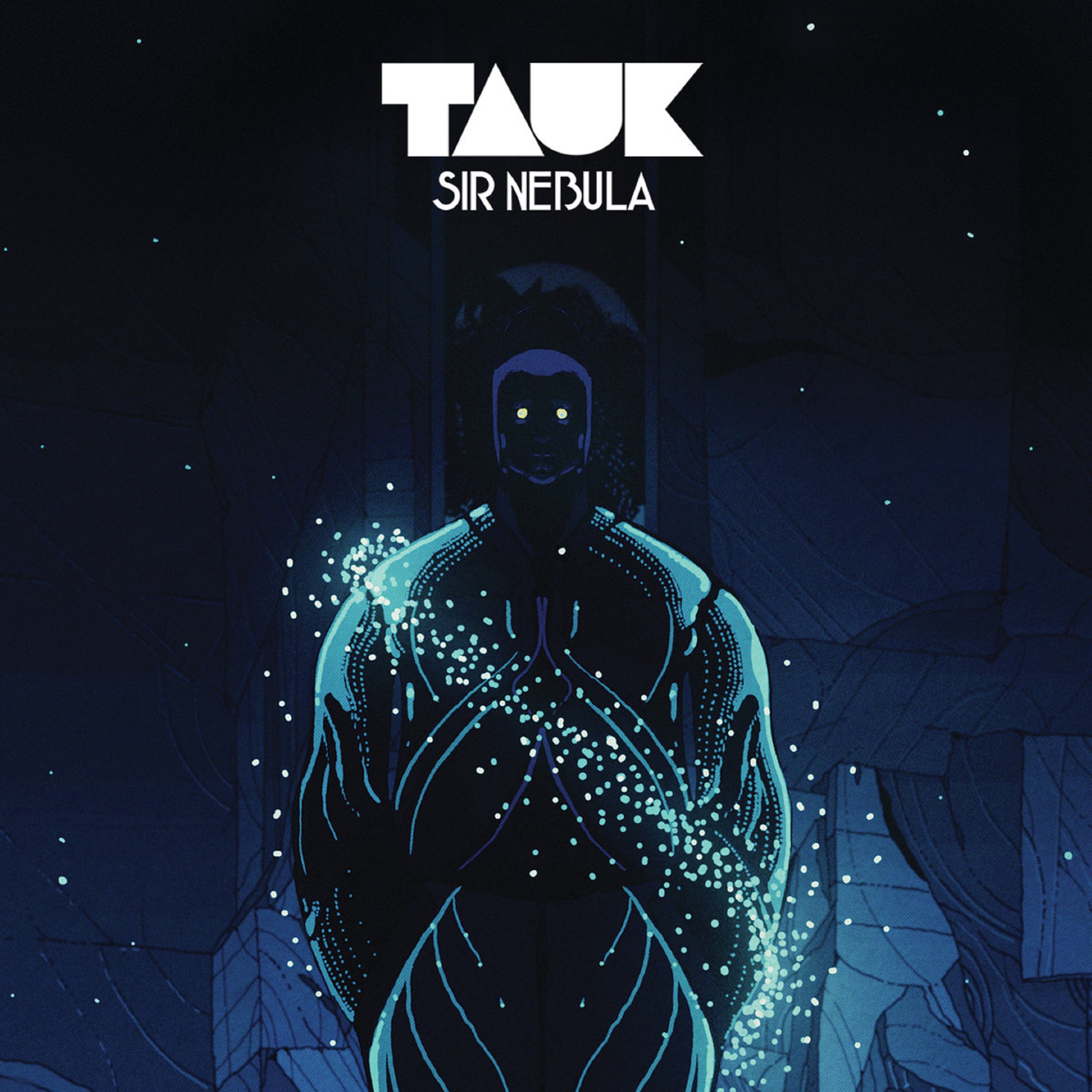On Friday, July 15, jamtronica pioneers Lotus released their highly anticipated 13th studio album Eat The Light with North American tour dates to follow.
The album is unique in that for the first time, the instrumental-heavy band opted to focus their efforts on cultivating a specific aspect skill set; almost like a case study. For many long term fans, the news that the 10 track album will feature vocals on every track came as an upsetting surprise.
But as Luke Miller points out, at its heart, Eat The Light is a summertime disc, best enjoyed during “The Magic Hour” – that moment just after sunrise or just before sunset where shadows are darker, colors are brighter and the definition and contrast of the day are at their sharpest.
“I wanted Eat the Light to be a celebratory album that people could sing along to while driving down the California coast,” says Miller. “This is the sound of summer that makes you want to dance and raise your hands to the sky.”
Drawing from disco and dance heavy influences, Lotus has come out with an alarmingly catchy record. According to bass player Jesse Miller, it is purposefully pop.
“It is a pop record in the sense that the arrangements are purposely simplified and the melodies are catchy. We want people to be humming these songs days after hearing them. The album doesn't need an accompanying catalytic life story to be explained, just put it on the stereo and enjoy.”
This quick burst of consumption is unique to Lotus in that many long-term fans (the band formed in 1999, after all) will want to dislike it, and they will. But they won’t be able to escape it.
It will be easy to dismiss on the surface, as fans react with a sense of abandonment in the notion that Lotus sold out by adding vocals. Overall, I wanted to dislike it and I wanted quintessential Lotus. Truth be told, Eat The Light IS quintessential Lotus.
The album opens with “Fearless”, a hot electro-salsa beat that features vox from Philadelphia based soul singer Mutlu Onaral that echoes a theatrical production. It is over the top and throws the listener into the unknown, like if The Floozies had recorded a song for the film Suckerpunch.
“I've Been A Fool (Toy Guns)” features a quick click track intro drenched in The Golden Filter. Lotus’ own Jesse Miller provides reverb drenched vocals that live on a whisper with guest vocalist Gabe Otto backing him up. While the guitar and beat are clean and sharp, fast and simple, the sounds and vocals layer fast before dropping away in a culmination of explosive intensity.
The albums titular track “Eats The Light” was the debut single and has been available since January. A killer track that has already received its fair share of criticism, it is the longest song on the album. Gabe Otto, who played the role of David Byrne during Lotus’ Talking Heads Deconstructed shows, takes over the lead vox. This track is much more representative of the album as a whole than most anticipated.
“Move Too Fast” might be titled after the studio notes for drummer Mike Greenfield and percussionist Chuck Morris. Drawing heavily from the archetypical ELO/Talking Heads synth beats, the track also features some of my favorite bass work. It is a light hearted sway-dance song that will surely be good for quickly changing the vibe mid set.
Jesse Miller and Gabe Otto team up for vocal duties again on “Sleep When We Are Dead” and is it funky! With an old school hip hop vibe over the breathy vox and clean guitar with a warbling wah effect uncannily bridges the gap between the early 60s Beach Boys singing in the sunshine and what Smash Mouth was trying to do, except here Lotus nails it. The surf rock chorus is catchy and light but seamlessly enters a house-style break down that is as equally danceable. Definitely the most explorative song on the album, this track leaves a ton of room for fun live.
“White Light Fadeaway” sounds like somebody has been listening to a lot of Tame Impala, from the dischordant minor groove to the tonal similarities between Kevin Barnes and the track’s guest vocalist Steve Yutzy-Burkey’s high tenor. This is not Yutzy-Burkey’s fisrt Lotus collaboration either: he has worked with the band on “Tip Of The Tongue”, “Disappear In A Blood-Red Sky” and “The Surf”.
“Anti-Gravity” is unique in that it is one of only two tracks on the album that features a female lead, in this case Los Angeles based Oriel Poole’s voice is drenched in sorrowful, Macy Gray power. Featuring a super disco vibe with Devo style synths and porn guitar, the song evokes the hot and heavy infatuation of a summer romance that eventually turns into a really upbeat jam, perfect for roller skating backwards to.
The next song that features a female handling vox is “Suntan”. Also the shortest song on the album, the Denver based Rachel Eisenstat’s voice is full of regret, maybe even apologetic, but still recognizes the positive in bright lights and even captures a glimmer of hope among the merits of getting burned. Like most longtime fans will feel, without the merit, I presume.
Welcoming back Mutulu Onaral from the opening track, “When Our Nerves No Longer Twitch” features the light melodic bubbliness of Owl City with R&B Usher vox. People will either love this or hate it and i can’t decide. The track eventually gets heavier in the bleep and bloop glitch influenced tones and the subject matter (in light of it being about light) and the vocals have an authentic emotion behind them. By the end of the song layers and mixes overlap like an Alice In Wonderland remix.
The album closes with “Sodium Vapor” and features Austin, TX based Andy Bianculli on vocals. A full and rich synth intro almost resembles a cheering chorus of medieval trumpeters. Featuring acoustic guitar sounds under a wholly 60s psych-rock vibe harkens back to the summery and light mood that the band has been aiming for the whole time. The strength of the closing track is enough to let the album repeat back to the beginning. Easily the most poppy love song they’ve ever done, the synths never stop oozing.
It is unique to their twist and vision in the electronic jam scene, a record that only Lotus could have made, but it is hyper-focused on a tool they only toy with in the past. This album will be more widely accessible to a huge flux of genres and more widely accepted by new fans. There is plenty of room for these tracks to be peppered into Lotus’ already incredible live show without losing any momentum.





